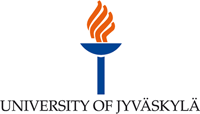Food as an issue of cultural sustainability? - report from "Creative Space" in Innsbruck
Capturing Culture in Sustainable Development Assessments
University of Innsbruck
23 October 2012
Food as Cultural Practice in Sustainable Development Approaches
Organized by Mari Kivitalo and Christiaan De Beukelaer
Present: Constanza Parra, Emeline Eudes, Katriina Siivonen, Marie Leus, Cecilia De Ita, Ljiljana Mijatovic
The idea developed by Mari and Christiaan is that there have been a few blind spots in the approach of the COST Action so far. This is obviously an issue that cannot be avoided, even though the members of the Action cover a vast number of fields and disciplines surrounding our common investigation into cultural sustainability.
One of the blind spots has been attention to food. [a few sentences on our approach.]
The session was approached as a creative discussion. As such, the focus was on opening, rather than closing, the debate. It was thus no surprise that we ended up with far more questions than we started with, and that little firm answers to any of those questions has been formulated.
There was a general consensus that
1. Food is indeed a topic that could do with more attention within the Action.
2. The content-focused discussion space very productive
3. Food, as an issue when investigating cultural sustainability is interlinked with dimensions of sustainability and many other issues. These issues will be discussed below.
In terms of questions, the following issues have come up:
1. How can we better include a focus on education? How, and to what extent, should we include a focus on existing educational programs in our approaches of our Action? In what ways can we come up with policy recommendations towards education policies? How can the effects of such policies be measured?
2. In what ways can the psychology of habit and transition be taken into account? How should we try to balance our focus on culture and transformation?
3. In what ways should (in)formal decision-making processes be taken up in our focus on, and analysis of governance structures?
4. How should we relate to changing lifestyles (both through voluntary internal, (in)voluntary social, and involuntary external pressures)?
5. In what way should the Action take a normative stance in debates on economic growth?
Indeed, food as a concrete example illustrated us that it is challenging to find a win-win-win-win situation between all the four dimensions of sustainability. As previously indicated, the session led to far more questions than answers. These questions, we hope, will be discussed further in Rome and beyond. Not only in a small session, but also transversally in book project meetings and working groups.


